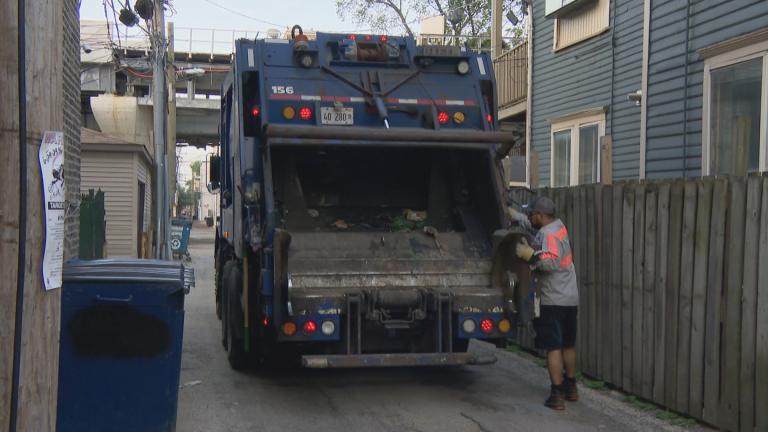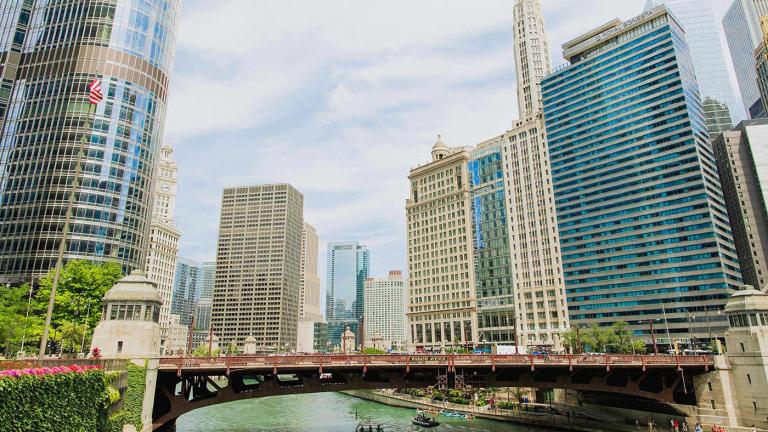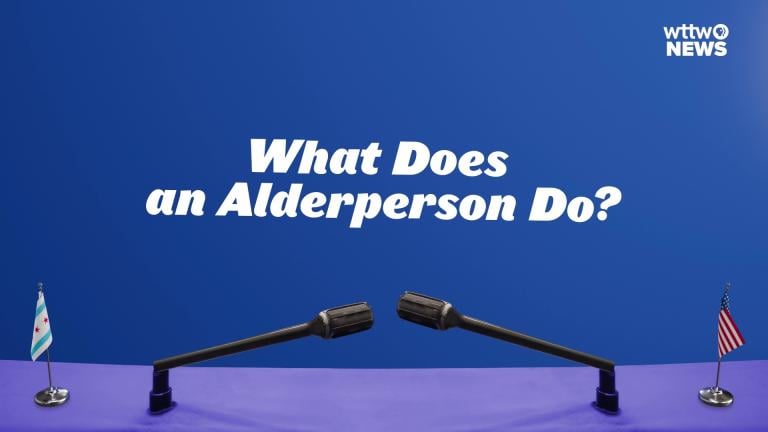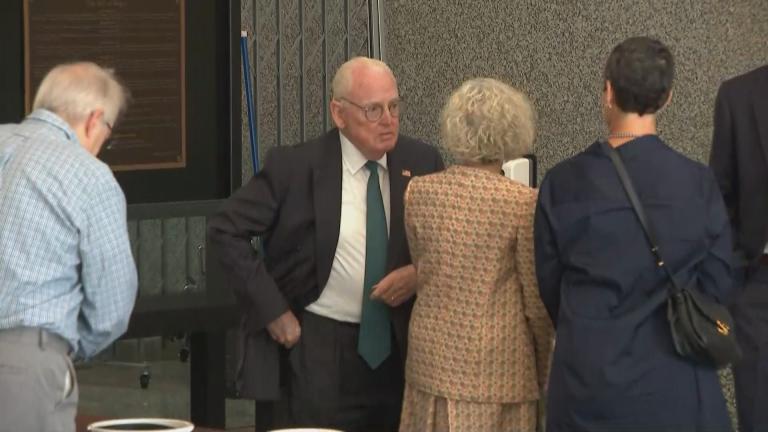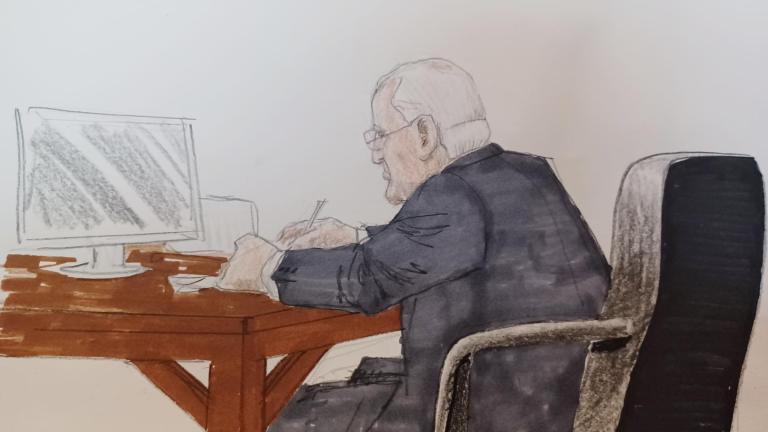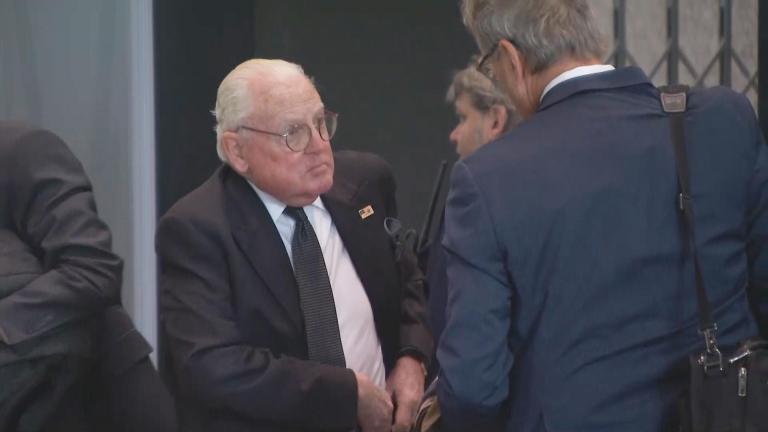The Chicago City Council’s Police and Fire Committee unanimously advanced Mayor Brandon Johnson’s pick to lead the Chicago Police Department on Friday, after Chief Larry Snelling repeatedly praised officers’ bravery and vowed to make their well-being his highest priority.
“Our officers are painted as robots built on an assembly line, as though they don’t have feelings, they don’t have family members,” Snelling said in response to a question from Ald. Angela Clay (46th Ward.) “We don’t spend enough time getting to know our officers. Now, I’m not saying that we do or we’ve done everything right. There are there are a lot of things we can do better as a department. However, these are human beings, these are men and women.”
Snelling is now one vote away from becoming the 64th superintendent of the Chicago Police Department. The full City Council is scheduled to consider his appointment at a special meeting set for Wednesday, and that vote is likely to have more in common with a coronation than a confirmation hearing.
Snelling won plaudits from alderpeople from across the political spectrum as he pledged to implement Johnson’s pledge to fight the surge of crime and violence that began during the peak of the COVID-19 pandemic and has yet to fully recede with a holistic approach that focuses on the root causes of crime.
“Until we get together as a community and work – police, community partners – in lockstep with one another, we are not going to move forward,” Snelling said. “If we work together as a team, I guarantee you we can move forward.”
Snelling, 54, gave a full-throated endorsement of the heart of the proposal that has become known as “Treatment Not Trauma,” which would expand efforts to respond to 911 calls for help not with police officers but with social workers and counselors.
Since a pilot program began in September 2021, four teams operating on the North Side, West Side, downtown and the Southwest Side have responded to nearly 1,200 calls for help with no arrests or uses of force, according to city data.
Three of those teams do not include a police officer, including the team that launched in March downtown and in the South Loop with a Chicago Fire Department paramedic and a drug recovery specialist.
Chicago police officers are tasked with doing too many things, Snelling said, adding that asking social workers, addiction specialists and counselors to respond to calls for help from people experiencing mental health calls could ease officers’ workload.
Snelling said he would also look to technology like drones and license plate readers to free up officers when possible, a proposal enthusiastically embraced by alderpeople who have seen a surge in property crimes at the same time that homicides have dropped 8% and the number of people who have been shot dropped 15%, as compared with the same period in 2022.
Snelling said one of his highest priorities once he takes office is to analyze how officers are deployed to ensure they respond as efficiently and effectively as possible, given that the department has 1,744 vacant positions, according to city records. Despite that, alderpeople and Snelling repeatedly referred to the department’s 1,500 vacant positions, without explanation.
The Chicago Police Department’s 2023 budget, which totals $1.94 billion, includes 14,093 positions. The Chicago data portal listed 12,349 active employees of the Police Department, which means 87.6% of all budgeted positions are filled. That is essentially unchanged from July 2022.
Fulsome Praise for Officers
Snelling studded his remarks during the three-hour hearing with praise for officers. Since his appointment more than a month ago, he has repeatedly vowed to make improving officer training and wellness his highest priority.
“We have to support those people who are standing between those who will do you harm because they are the only ones stopping it,” said Snelling, vowing “to love” the officers under his command.
Snelling said he was incredulous that a member of one of the city’s police district councils asked him during a Sept. 7 hearing before the Community Commission for Public Safety and Accountability to imagine a world without police, given the existence of violent crimes.
“These are all things that people don’t necessarily want to hear or want to talk about: People who can’t even walk out on their front porch because they’re prisoners in their own home,” Snelling said. “Our police officers are out there to help people.”
Snelling offered unsolicited praise for officers’ conduct during the civil unrest that swept the city in the wake of the police murder of George Floyd in May 2020, telling alderpeople they went above and beyond the call of duty while dehydrated, hungry and tired while being subjected to intense abuse from outraged protestors, many of whom demanded wholesale changes to policing in Chicago that have not materialized.
“They kept their cools, they responded the way the city needed them to respond to stop the city as a whole burning down. They were taunted,” Snelling said.
The agency charged with investigating Chicago Police misconduct received more than 370 complaints about officers’ conduct during the unrest. The City Council has settled several lawsuits alleging misconduct during the unrest, including a $1.67 million settlement for five people who were pulled from their car by seven officers and beaten near the Brickyard Mall on the city’s Northwest Side.
An inquiry by the Chicago inspector general’s office found that the Chicago Police Department botched nearly every aspect of its response to those protests, undermining efforts to rebuild the community’s trust in the department.
Ald. Samantha Nugent (39th Ward) was the only alderperson to press Snelling about how he would ramp up efforts to comply with the federal court order, known as the consent decree, that is designed to force the department to change the way it trains, supervises and disciplines officers.
The department has fully complied with just 5% of those requirements, and the team overseeing court-ordered reforms of the Chicago Police Department warned city officials in June that the team has “significant concerns” about the department’s commitment to constitutional policing.
Snelling vowed to ensure officers get quality training that prepares them to protect and serve the people of Chicago, but did not outline a new approach to reforming the beleaguered department, which has faced decades of scandals, misconduct and brutality.
Instead, Snelling emphasized that department is in preliminary compliance with approximately 60% of the consent decree’s requirements and secondary compliance with another 23% of the requirements, according to the monitors’ latest report.
“There are a lot things that are in the works right now that have just not met full compliance, but they are being done,” Snelling.
Contact Heather Cherone: @HeatherCherone | (773) 569-1863 | [email protected]

